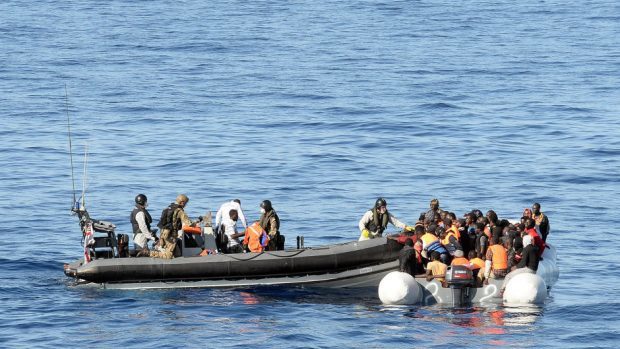The restrictive immigration regime planned by Theresa May’s government ‘completely pulls the rug from under the feet of business and communities in the Highlands and Islands’.
That was the claim made last week by Skye, Lochaber and Badenoch MSP Kate Forbes.
Not least because of the dependence of the north’s healthcare, tourism, fish-processing and other sectors on immigrant labour, it’s hard to argue with this and similar warnings.
But concern about the implications of proposed anti-immigration measures ought to be rooted in more than worries about their adverse impacts on our economy. These measures are also lacking in humanity – in understanding of what it is to be a person in desperate search of a life that’s a bit better than the one from which migrants are trying to escape.
And if there’s anywhere in Britain where there should be some such understanding it’s the Highlands and Islands. Historically, after all, our own folk have experience of the emotions and unease that can be generated by a migrant influx – an influx very much larger than the one that caused Home Secretary Sajid Javid to proclaim a ‘national crisis’.
The migrants in question didn’t arrive in ones and twos in dinghies. They came by the shipload. Hundreds of them at a time. Something that caused widespread and strongly-felt alarm in the places they poured into.
Alarm was intensified by the alien nature of the folk coming ashore. ‘I am put to great difficulty with with these people,’ said one immigration officer, ‘because I am unable to communicate with them except by signs. They do not understand one word of English.’
And it wasn’t as if the migrants were highly skilled. They weren’t doctors, nurses, engineers. Nor were they plumbers, joiners or the like. They had no trades to offer. Most of them were illiterate in their own incomprehensible language. And few had any cash at their disposal. They ‘present every appearance of poverty’, noted another official of families he inspected. ‘Many children of nine and ten years old have not a rag to cover them.’
Some commentators felt pity for migrants who, as one newspaper observed, were ‘sick from want’ and ‘destitute of any means of subsistence’. Others thought pity misplaced. To come up against the migrants, it was said, was soon to see that they were ‘indolent’ and ‘dirty’.
That was bad enough. But what was worse was the extent to which ‘the uncleanliness of their habits’ made it certain, or so it was alleged, that the human cargoes being disgorged at docks and jetties every day were bringing illnesses that might spread to the resident population.
Sentiments of this sort are by no means absent from the debate sparked by Mr Javid’s decision to elevate a handful of illicit crossings of the English Channel into a ‘major incident’ requiring the intervention of the Navy.
But the comments quoted in preceding paragraphs weren’t voiced in Britain. Nor had the migrants that were the source of so much anxiety started their journeys in Syria, Iran, Afghanistan or Somalia.
These comments date from the 1850s. They can be found in press reports and in official documents of that time – reports and documents compiled in Quebec and Melbourne.
And the migrants who gave rise to so much apprehension in Canada and Australia? They came from the Highlands and Islands.
They were not fleeing war these folk. But they had, for all that, a great deal in common with migrants of the sort Mr Javid’s presently trying hard to keep out of our country.
Because the West Highland and Hebridean crofting families of that era lived mostly on potatoes, and because their potatoes had been destroyed repeatedly by blight, the places those 1850s migrants set out from were places experiencing famine of the kind we now associate mostly with Africa.
Although the present-day equivalent of millions of pounds had been raised to aid the victims of this Highlands and Islands famine, food shortages had gone on for so long that the owners of affected estates had decided to rid their properties of what they called ‘a redundant population’.
So family after family was evicted from their homes and bundled on to ships that carried them across the ocean.
As happens today to migrants trying to reach Europe by way of the Mediterranean, many Highlands and Islands migrants never reached their destinations; sometimes because the rickety vessels they’d boarded sank in storms; more often as a result of shipboard infections like typhus.
But for all the animosity and panic survivors encountered in places like Melbourne and Quebec, those Gaelic-speaking refugees from the Highlands and Islands were not refused entry, turned away or incarcerated in reception centres of the sort where today’s migrants so frequently end up.
They did not have it easy. They endured difficulties of a sort most of us can scarcely start to comprehend. But in the end they got the chance not just to make new lives for themselves but to contribute greatly to the development of the countries that, however grudgingly, took them in.
For us, perhaps, there’s a lesson in that
Jim Hunter is a historian, award-winning author and Emeritus Professor of History at the University of the Highlands and Islands

